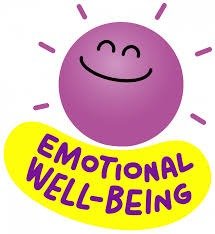In today’s fast-paced world, emotional well-being is more important than ever. It affects how we handle stress, relate to others, and make decisions. But what exactly is emotional well-being, and how can we nurture it?
What Is Emotional Well-Being?
Emotional well-being refers to the ability to manage emotions effectively, maintain a positive outlook, and cope with life’s challenges. It’s not about being happy all the time—it’s about resilience, self-awareness, and emotional balance.
Why Is Emotional Well-Being Important?
When we prioritize emotional well-being, we experience:
- Better relationships – Strong emotional health helps us communicate effectively and build meaningful connections.
- Improved physical health – Stress and negative emotions can impact our immune system, heart health, and sleep patterns.
- Greater productivity – A balanced emotional state enhances focus, creativity, and decision-making.
- Higher resilience – Emotionally strong individuals bounce back from setbacks more easily.
How to Improve Emotional Well-Being
1. Practice Self-Awareness
Understanding your emotions is the first step toward managing them. Take time to reflect on your feelings and identify triggers that cause stress or anxiety.
2. Develop Healthy Coping Mechanisms
Instead of suppressing emotions, find constructive ways to deal with them:
- Journaling your thoughts
- Engaging in creative activities like painting or music
- Talking to a trusted friend or therapist
3. Maintain a Positive Mindset
While negativity is inevitable, shifting your focus to gratitude and optimism can improve emotional health. Try:
- Keeping a gratitude journal
- Practicing positive affirmations
- Surrounding yourself with uplifting people
4. Prioritize Self-Care
Taking care of your body directly impacts your emotional state. Ensure you:
- Get enough sleep
- Eat a balanced diet
- Exercise regularly
5. Build Strong Relationships
Social connections are vital for emotional well-being. Spend time with loved ones, engage in meaningful conversations, and seek support when needed.
6. Manage Stress Effectively
Stress is unavoidable, but how we handle it makes all the difference. Techniques like meditation, deep breathing, and mindfulness can help calm the mind.
Emotional well-being is a lifelong journey, not a destination. By making small, intentional changes, you can cultivate a healthier, more balanced emotional state. Prioritize self-care, embrace positivity, and nurture relationships—because a happy mind leads to a fulfilling life!

